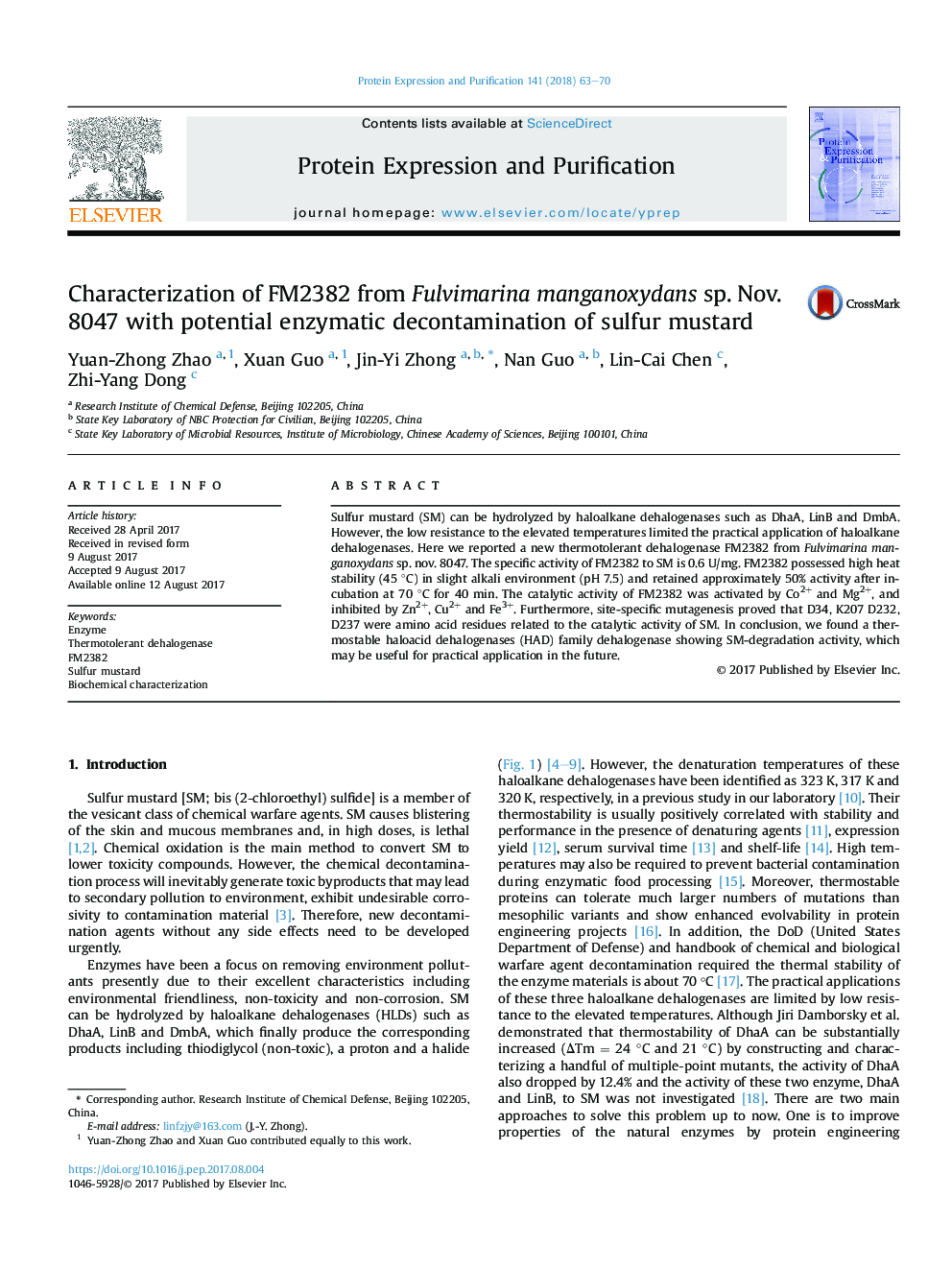| Article ID | Journal | Published Year | Pages | File Type |
|---|---|---|---|---|
| 5515974 | Protein Expression and Purification | 2018 | 8 Pages |
â¢We mainly focused on looking for a thermotolerant dehalogenase with wider range of substrates spectrum.â¢A new thermotolerant dehalogenase FM2382 has been cloned and over-expressed in E. coli.â¢FM2382 was applied to hyrolysis SM, and the results proved that FM2382 had a certain activity to SM.â¢FM2382 had mesophilic properties and maintained 50% of its natural activity after being incubated at 70 °C for 40 min.â¢The substrate specificity of FM2382 to SM has not been fully excavated.
Sulfur mustard (SM) can be hydrolyzed by haloalkane dehalogenases such as DhaA, LinB and DmbA. However, the low resistance to the elevated temperatures limited the practical application of haloalkane dehalogenases. Here we reported a new thermotolerant dehalogenase FM2382 from Fulvimarina manganoxydans sp. nov. 8047. The specific activity of FM2382 to SM is 0.6 U/mg. FM2382 possessed high heat stability (45 °C) in slight alkali environment (pH 7.5) and retained approximately 50% activity after incubation at 70 °C for 40 min. The catalytic activity of FM2382 was activated by Co2+ and Mg2+, and inhibited by Zn2+, Cu2+ and Fe3+. Furthermore, site-specific mutagenesis proved that D34, K207 D232, D237 were amino acid residues related to the catalytic activity of SM. In conclusion, we found a thermostable haloacid dehalogenases (HAD) family dehalogenase showing SM-degradation activity, which may be useful for practical application in the future.
